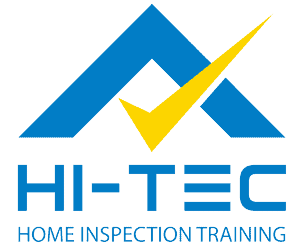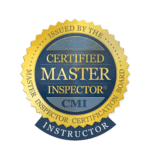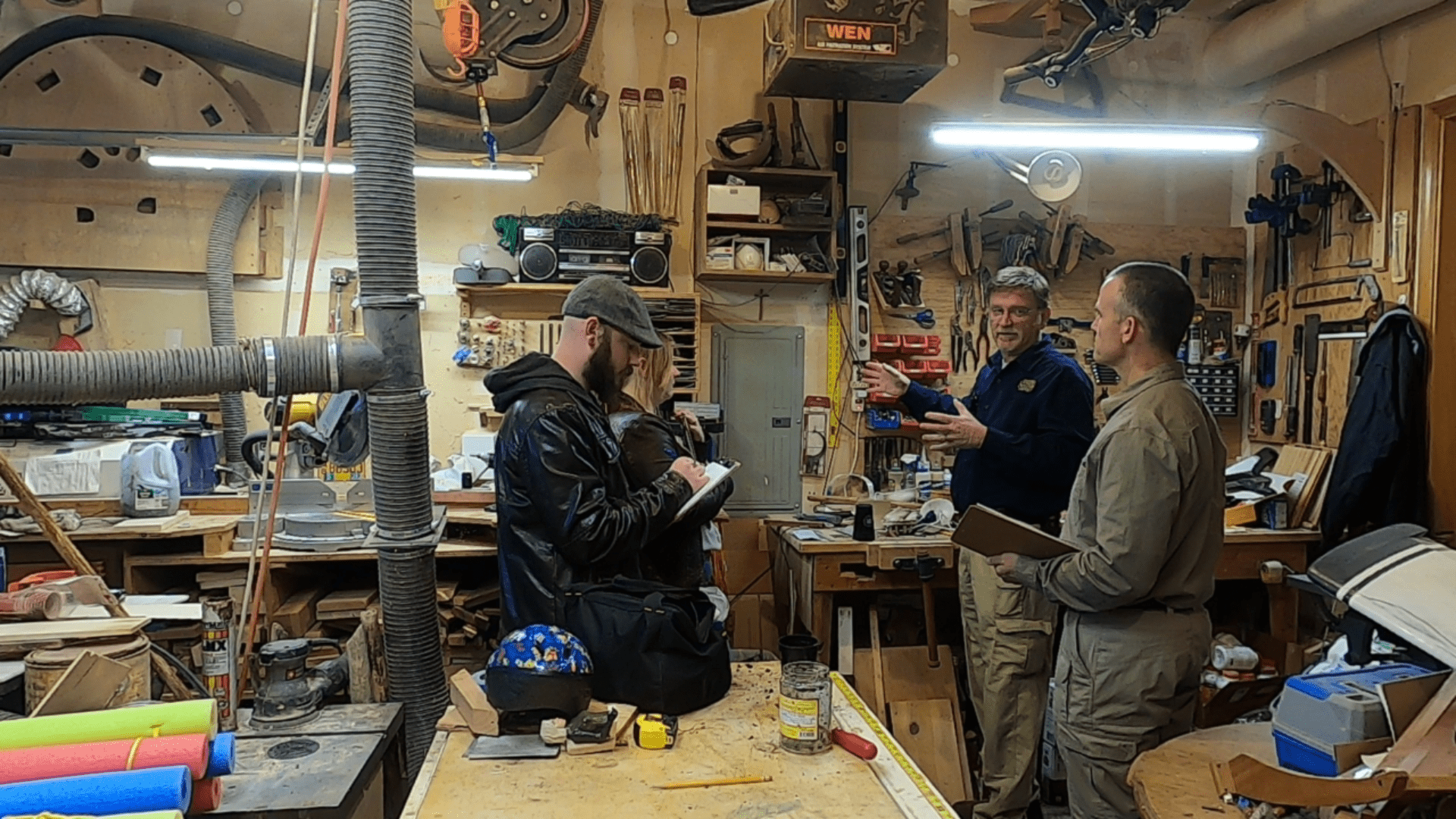What Makes a Good Home Inspector?
For the sake of time, we’ll focus on the top five traits a home inspector must have to be successful: Determination, solid communicator, technical skills, diminished ego, and integrity.
Determination
People often ask us in class, “What makes a good home inspector?” Starting a new career in any industry begins with determination, and home inspections is no different. Even if the inspector is going to work for a multi-inspector firm, there is groundwork to be laid to get their career off on the right foot.
Home inspections is a relationship business and our success depends on having a solid relationship with real estate agents. Even in the modern, digital age, the vast majority of our clients (about 9 out of 10), still trust their real estate professional more than any other source to refer the home inspector. Every successful inspector has had to put forth a lot of effort to establish, build, and maintain solid relationships with real estate agents.
Establishing and maintaining these relationships requires work in between the home inspections. The work is simple, but it takes time and it’s called marketing. Marketing is the foundation of every successful inspection firm. It’s where the home inspector goes out into the community and spends time getting to know real estate agents. Our most successful students have had the determination to make this happen and they reap the rewards every day.
Solid Communicator
In the previous section, we discussed determination to build relationships with agents because they refer our clients. Here, we learn one of the most critical tools we have for maintaining those relationships. Every good home inspector has the right communication skills to achieve three things: 1) make the client feel good about the inspection process, 2) communicate in a simple manner the client can understand, and 3) Avoid being an alarmist.
Agents like to refer home inspectors who encourage the client to attend the home inspection and get their questions answered on site. When the client and the home inspector interact at the property, the client is more likely to get all their questions answered. This results in fewer questions after the inspection, and a more informed decision can be made by the client on how to proceed through the remaining days of the transaction.
Another communication must is simplicity. All too often, I hear other home inspectors bragging on themselves and belittling past clients and agents for how little they know about the details of a home or a home inspection report. I can always tell by the way they’re talking how they tend to work very hard to impress their clients with vast technical knowledge and it’s a big mistake.
When it’s time to review the inspector’s findings, clients don’t care about how intelligent the home inspector is nearly as much as they care about the condition of the home. A successful home inspector always communicates their findings (verbally and in writing) in simple, everyday language that is easy to understand.
In fact, the word many agents use to describe their worst experience with a home inspector is, “alarmist.” Communicating in technical verbiage, bragging about how stupid a particular deficiency is, or overstating deficiencies to build value in the home inspection will almost always result in increasing client anxiety. Increased client anxiety leads to more work and damage control for both the listing and buyer’s agents. Unnecessary d something neither like to do. It only takes one or two instances where the home inspector has communicated in an alarming way for the agent to decide not to ever refer them again.
Proper communication makes the agent’s job much easier and the transaction smoother. The best part about good communication is that the home inspector can impress the agent by making their job easier without the inspector compromising his or her standards or ethics. It’s the best way to build a solid rapport with the agents and keep them calling.
excellent Technical Skills
It should go without saying that technical skills are an absolute must for a home inspector, but what about after the initial education? By the time a home inspector has finished school and performed a couple hundred inspections, haven’t they seen just about everything there is to see? The answer is simply, “no.”
I’ve personally performed thousands of inspections across the United States. To this day, I see new conditions, deficiencies, products, or materials every month. In our industry, the inspector can never stop learning because it will be the one thing you don’t know that is most likely to come back and haunt the inspector in the form of a complaint or an embarrassing moment where credibility is forever lost because the inspector cannot adequately describe something.
Keeps Their ego in Check
Ours is an industry where many people like myself get to start their own business and make great money for very little up front cost or risk. After a couple of years and 400-500 inspections, a home inspector has overcome a lot of hurdles, mitigated risks, and won a few key arguments with more than one contractor. Even more, they’ve found thousands of deficiencies and helped hundreds of clients avoid costly repairs and safety hazards. This is where we all reach a turning point in our careers.
It’s the point where we become one of the 50%, and it’s which 50% we choose that determines overall success and longevity. The most successful home inspectors become the one in two who maintains business as usual. Less successful inspectors become the one in two who’s communication style becomes arrogant, cocky, and unlikeable. While this arrogance does impress a few people, unfortunately, when agents no longer like a person, they no longer refer their business to that person.
It’s not a hard decision for an agent to try a new home inspector out when they believe that inspector has superior communication skills and is a better fit for their clients. This usually results in the alarmist inspector being relegated to the bottom of the referral list and called only when no one else is available. The result is about 150-250 fewer inspections per year for the arrogant inspector.
My advice to students is to keep your ego in check. Yes, you’re an awesome inspector and you deserve to be confident, but don’t let that carry over into your interactions with agents and clients because you’ll be perceived as arrogant, condescending, and rude.
Integrity
All of the previous traits mean very little (and may not even be possible) without integrity. A home inspector’s job is to observe, report and describe objectively, and a lot of people can learn how to do that. However, not everyone can have the presence of mind to stand behind their work, pay for their mistakes, maintain the Standards of Practice on each and every inspection, and perform ongoing marketing between inspections to maintain positive relationships.
I say presence of mind because we all must condition ourselves to put the client first. It takes conditioning because ours is a profession where accuracy is everything, and putting the client first means placing our inner desire and need to be accurate and correct last. Here are a few do’s and don’ts that lead to integrity.
Do:
- Own up to your mistakes
- Treat every client with respect
- Speak to every client and agent as if they were your friend
- Maintain the SOPs on each and every inspection
Don’t:
- Compromise your Code of Ethics
- Argue with clients or agents
- Criticize others for asking any question
This is only an abbreviated list of what all our students learn in HI-TEC’s courses, but it is a good start. It is also a great reminder for any home inspector reaching that critical turning point in their careers, so be sure to revisit this article after your first couple of years in business!
Closing
HI-TEC thinks like a school AND a business. We have live classes and a fully self-paced curriculum to suit the many needs of our students. We discuss everything about the home inspection career in every class we teach. Like we’ve mentioned so many times, we want to be a part of your success and that means teaching you everything we know about passing the exam and starting your career. It’s how we give you the high ground advantage. We’re better because we focus on the core competencies you need to get started. We’ve worked for the biggest schools in the country. We know what students need to be successful, and how to best provide everyone with the knowledge and skills required to make home inspections a lifelong career. We don’t make sales pitches in class, and we teach the marketing in every class so you can get licensed, get marketing, and start recouping your investment right away.
Give us a call at 877.51.HI.TEC and let one of our admissions experts help you get the answers you need!



